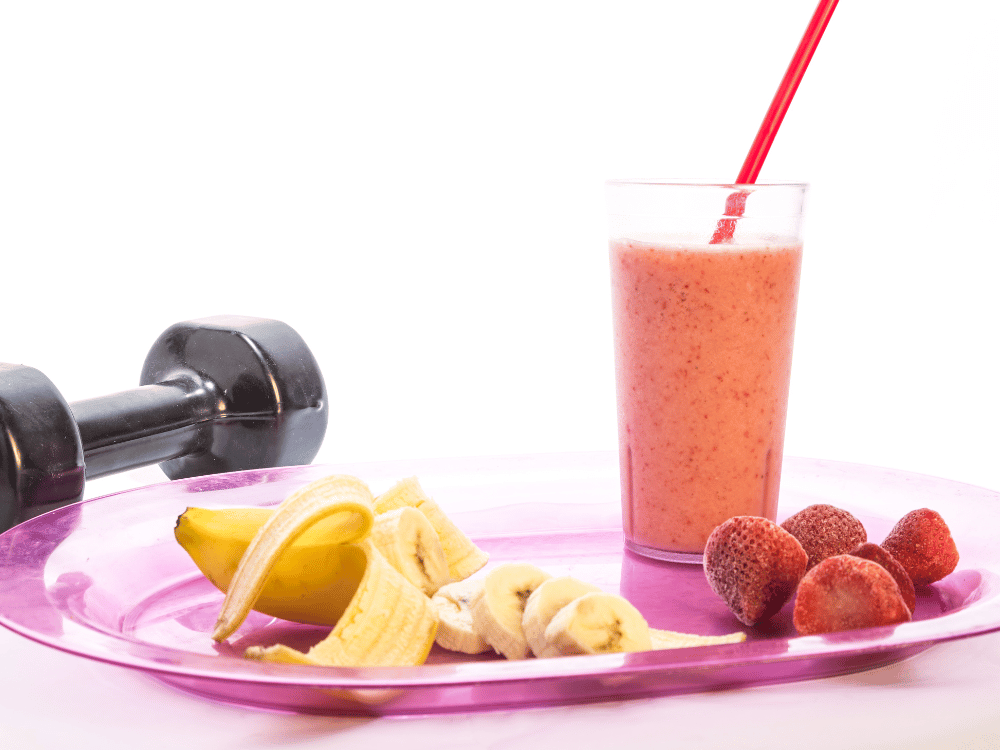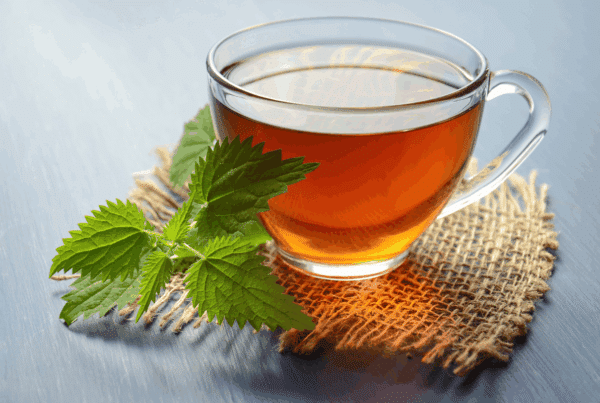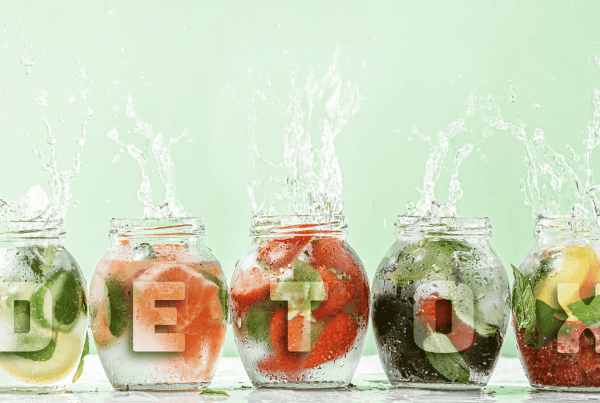In a world of fast-paced and demanding physical activities, post-workout recovery is becoming a key component of our journey towards better fitness and a healthier lifestyle. And while the intensity and type of exercise play an important role, we must not forget that nutrition is just as important, if not more important, when it comes to recovery.
Think of food as fuel for your body, and properly selected foods as the most effective way to renew yourself and prepare for the next training session. Our blog today will explore the secrets and strategies for faster post-workout recovery with the help of a variety of foods that can be found in your daily diet.
Banal sandwich after training? No thanks! Instead, you'll learn how a banana can become your best friend after an intense workout, how green tea can soothe sore muscles, and how avocados and nuts provide the essential fats needed for recovery.
You'll also learn why hydration is key, and how chocolate milk can be an unexpected ally for your muscles. In this blog, we will debunk myths about post-workout nutrition and offer you tips for the best possible recovery.
So get ready to discover how to recover faster, stronger and with more energy with the help of food. Your muscles will thank you, and you'll reach your goals faster in and out of the gym. Let's embark together on a journey towards optimal post-workout recovery!
Bananas are the secret to quick recovery after training: Here's why!
Banana is a fruit that is often a great ally when it comes to quick recovery after a hard workout. Why are bananas so extraordinary? The reason lies in their rich nutritional value and quick availability of energy.
Firstly, bananas are an excellent source of natural sugars, especially fructose, glucose and sucrose, making them a quick source of energy. After training, our body needs to compensate for the loss of glycogen, the fuel that muscles use during exercise, and bananas are the ideal way to do that.
In addition to providing energy, bananas are rich in potassium, an electrolyte that helps maintain fluid balance in the body and prevent muscle cramps.
They also contain vitamins such as vitamin C, B6 and folate, as well as fiber that supports the digestive system.
So, when you want a quick recovery after a workout, don't forget to add bananas to your diet. They are tasty, practical and provide you with the necessary energy and nutrients to make you feel refreshed and ready for the next workout.

Green tea as a secret weapon for recovery after intense exercise
Green tea, known for its many health benefits, may be the secret to faster recovery after intense exercise. A key component that makes green tea extraordinary is the presence of powerful antioxidants, especially catechins.
The catechins in green tea have powerful anti-inflammatory properties that help reduce post-workout inflammation. Intense physical activity can cause oxidative stress in the body, leading to inflammation and muscle damage. Catechins neutralize free radicals, reducing inflammation and aiding in faster muscle recovery.
In addition, green tea can help with hydration as it is often consumed as a beverage. Hydration is key to recovery, as it helps replenish fluids and electrolytes lost during training.
Therefore, after completing your strenuous workout, consider drinking a cup of green tea. Its antioxidants can help you recover faster, reduce inflammation and be ready for the next challenge.
Healthy fats for faster recovery: Avocados and nuts
Healthy fats from avocados and nuts are often overlooked, but they play a key role in the recovery process after intense exercise. These foods offer numerous benefits that support muscle and joint health.
Avocados are rich in healthy monounsaturated fats that help reduce inflammation and maintain blood cholesterol balance. Also, avocados are a source of potassium, which supports electrolyte balance and prevents muscle cramps.
Nuts, such as almonds, walnuts and hazelnuts, are rich in healthy fats, proteins and antioxidants. These ingredients support muscle and tissue regeneration, reducing inflammatory processes. Nuts also contain omega-3 fatty acids that help reduce joint pain and inflammation.
Adding avocados and nuts to your post-workout diet can help you recover faster, reduce your risk of injury, and keep your muscles and joints in top condition. These healthy fats also bring an extra dimension of flavor to your post-workout meals.
Muscle Repair Protein: The Best Post-Workout Protein Sources
Proteins are a key component of muscle recovery after training and play an irreplaceable role in the process of rebuilding and growing muscle fibers. Different sources of protein offer different benefits, and choosing the right protein can speed up your recovery and improve performance. Here are some of the best post-workout protein sources:
- Chicken: Chicken is a popular source of protein that is low in fat and high in leucine, an essential amino acid that plays a key role in muscle protein synthesis. Eating chicken after training helps rebuild muscle fibers.
- Fish: Fish like salmon, tuna and mackerel are rich in omega-3 fatty acids which reduce inflammation and improve muscle recovery. Also, fish is a rich source of protein of high biological value.
- Eggs: Eggs are a great source of protein and contain all the essential amino acids needed for muscle repair. Egg whites are especially rich in proteins.
- Peas: Peas and other legumes are an excellent source of plant protein. They provide essential amino acids and fiber to support healthy digestion.
Properly combining these protein sources in your post-workout diet can help you maximize the benefits of protein. It's important to note that each person has their own individual protein needs, so consult with a nutritionist to determine how much protein you need for your goals and activity level.
Antioxidants from berries to fight post-workout inflammation
Berries like blueberries, raspberries and strawberries are not only delicious, but also rich in antioxidants that play a key role in fighting post-workout inflammation.
Blueberries are known for their high content of anthocyanins, which are powerful antioxidants. Anthocyanins help reduce oxidative stress after physical exertion and reduce muscle inflammation.
Raspberries are rich in vitamin C and other antioxidants such as quercetin. Vitamin C plays a role in the restoration and maintenance of healthy tissues, while quercetin can reduce inflammation and relieve muscle and joint pain.
Strawberries are a source of vitamin C and manganese, which play a key role in the synthesis of collagen, important for maintaining healthy muscles, tendons and ligaments. In addition, strawberries contain antioxidants that help neutralize free radicals and reduce inflammation.
Adding these berries to your post-workout diet can help reduce inflammation, ease soreness, and speed up the muscle recovery process. Berries are a delicious and healthy option that will provide you with the nutrients you need to feel refreshed and ready for your next workout.
Hydration as a key component of post-workout recovery: Coconut water and more
Hydration is a key component of recovery after training, and proper replacement of lost fluids plays a crucial role in maintaining performance and health. And while water is always a great choice for hydration, there are alternatives that can provide additional benefits, such as coconut water.
Coconut water is a natural source of hydration rich in electrolytes, including potassium, sodium, calcium and magnesium. These electrolytes help maintain fluid balance in the body and support muscle contraction. Coconut water is also low in calories and free of additives often found in commercial sports drinks.
When you drink coconut water after a workout, you replenish electrolytes lost through sweat, which can prevent muscle cramps and dehydration. In addition, the natural sweetness of coconut water provides quick and easy-to-digest energy.
However, it's important to note that not all are the same, so it's a good idea to check the label to make sure the product is pure and free of added sugar or artificial flavors.
While coconut water is a great option for hydration, you can also consider sports drinks, especially if you're exercising in very hot conditions or intensely for more than an hour. Sports drinks contain electrolytes and carbohydrates that can help maintain energy and hydration during extended workouts.
Chocolate milk: An unexpected ally for muscle recovery
Chocolate milk is an often overlooked but surprisingly beneficial option for post-workout muscle recovery. This delicious drink offers an ideal balance of carbohydrates and proteins, making it extremely effective for muscle recovery.
The carbohydrates in chocolate milk provide a quick source of energy, which is key to replenishing glycogen used up during training. In addition, chocolate milk contains protein, which is essential for muscle repair and growth.
This combination of carbohydrates and protein helps reduce muscle inflammation and supports recovery. Additionally, chocolate milk is delicious and easy to consume, making it a convenient post-workout choice.
After a hard workout, don't forget to consider chocolate milk as part of your diet for faster muscle recovery. Besides providing the necessary nutrients, it can also give you a dose of satisfaction after a successful workout.
Omega-3 fatty acids to reduce inflammation and soreness after training
Omega-3 fatty acids from fish and flaxseed are natural allies in reducing inflammation and pain after a strenuous workout. These fatty acids have anti-inflammatory properties that reduce inflammation in muscles and joints, facilitating recovery.
Also, omega-3 fatty acids can improve blood circulation, which contributes to a better supply of oxygen and nutrients to the muscles.
In addition, they can help reduce oxidative stress that can occur after intense exercise. Adding these nutrients to your diet can significantly contribute to faster recovery and less post-workout discomfort.
Fruits and vegetables rich in vitamins C and E for faster recovery
Vitamin C, present in fruits such as oranges, strawberries and kiwis, enhances the production of collagen, which is important for the health of joints and tendons. It also strengthens the immune system and reduces oxidative stress that can occur during physical activity.
Vitamin E, often found in nuts, sunflower seeds and spinach, acts as an antioxidant that protects cells from oxidative stress. It helps reduce inflammation and accelerate muscle recovery.
Apart from those listed, other sources of vitamins C and E include peppers, broccoli, avocados and almonds. Adding these foods to your post-workout diet can help reduce inflammation, speed up muscle repair, and leave you feeling refreshed for your next workout.
To Eat or Not to Eat: Post-Workout Nutrition Myths Debunked
After a hard workout, proper nutrition plays a key role in recovery and achieving desired fitness goals. However, there are many myths about what you should or shouldn't eat after exercise. In the following text, we will debunk some of those myths and offer expertly-based guidelines for a faster recovery.
Myth 1: You should eat immediately after training.
- Truth: Although there is a window of time after training when absorption of nutrients is better, it is not necessary to eat immediately. The most important thing is to ensure that you get an adequate amount of nutrients throughout the day.
Myth 2: Protein is the only important component of a post-workout meal.
- Truth: While protein is key to muscle recovery, carbohydrates are also important because they replenish the glycogen used up during training. An optimal meal should contain a balance of proteins and carbohydrates.
Myth 3: Fats are undesirable after training.
- Truth: Healthy fats, such as those from avocados, nuts and olive oil, play a key role in reducing inflammation and supporting recovery. A moderate amount of fat in the meal is beneficial.
Myth 4: You must eat specific foods or supplements to recover.
- Truth: There are no magic foods that will make you recover faster. It is important to consume a varied and balanced diet that contains all the necessary nutrients.
Myth 5: Higher protein intake is better.
- Truth: The body needs the right amount of protein, but overdoing it will not speed up recovery. Excessive intake can even lead to excess calories and deposition of those excess proteins in the form of fat. The optimal amount of protein varies from person to person and depends on the goals we want to achieve with training.
All in all, after training, it is important to ensure the intake of proteins and carbohydrates in a balanced range. Also, it is important to pay attention to hydration and intake of healthy fats.
The best practice is to follow your individual needs and rely on a varied diet to achieve faster recovery and achieve your fitness goals.
There are no magic solutions, but knowledge and proper nutrition are the keys to success in achieving optimal post-workout recovery.











